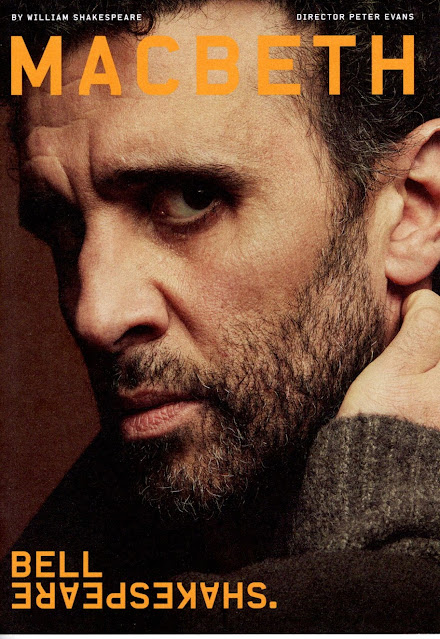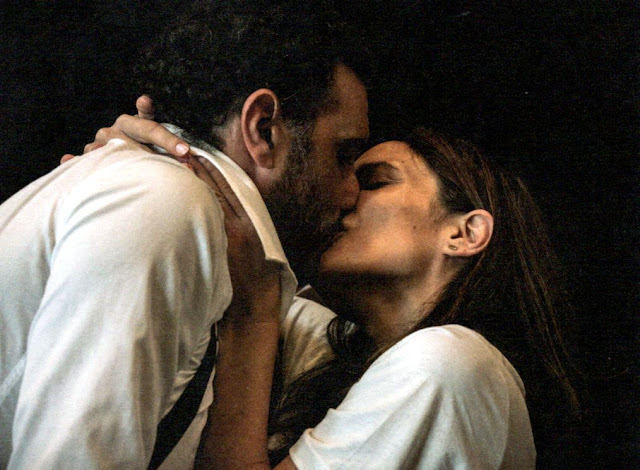Troilus & Cressida by William Shakespeare.
Adapted by Tony Allan; directed by Joe Woodward; original music by Jo
Philp. Daramalan College Theatre Company, at McCowage Hall, Dickson,
Canberra. April 22-29 2023.
Commentary by Frank McKone
In
the best theatre education tradition, these senior secondary students
are established as a complete company, covering front of house,
backstage and onstage – with input from professionals on occasion.
There are times in the learning process when facing up to a challenge beyond expectations is a valuable exercise. Staging Troilus & Cressida fits the bill. The Daramalan group are not the first to find Shakespeare’s 1602 play a bit of a mystery.
As Wikipedia records “Troilus And Cressida; Or, Truth Found Too Late
is a 1679 tragedy by the English writer John Dryden. It was first
staged by the Duke's Company at the Dorset Garden Theatre in London. It
was a reworking of William Shakespeare's 1602 play Troilus and Cressida,
set during the Trojan Wars. In acknowledgement of this Dryden has the
prologue spoken by Shakespeare's ghost, defending the alterations made
to the play.” It has been categorised as a Shakespeare ‘problem play’,
and this may have been the first attempt after, it appears, only one
performance in 1602/3.
But in more recent times “it has become
increasingly popular. Peter Holland of Cambridge University attributes
this to the work's relevance at times of impending war: William Poel's
1912 production served as a warning as the Great Powers of Europe armed
themselves for conflict and Michael Macowan's modern dress production of
1938 at the Westminster Theatre coincided with the Munich crisis. In
the international production at the Swan Theatre, Stratford, of August
2012, the depiction of Thersites as a wounded war veteran, and the
manner in which the Myrmidons killed Hector, "resonat[ed] with […] the
ongoing wars in Iraq and Afghanistan."
Today, considering Russia’s attempt to take control of Ukraine and other examples of warfare, Troilus & Cressida,
with its combination of the politics which ended with the killing
Hector by Achilles and the frustrated love story of the Trojan prince
Troilus and the Trojan Cressida – whose father (Calchas) defects to the
Greeks – is highly relevant. Calchas persuades the Greeks to exchange
the captured Trojan commander Antenor, for his daughter, so that he
might be reunited with her. Troilus sees her at a distance, appearing to
break her promise that even in the Greek camp, she will remain true to
him. In fact the man Troilus sees has engineered the situation against
her wishes; but Troilus is left believing an untruth, and never sees
Cressida again.
In politics and in this personal romance, trust,
faith in promises, and truth are the central issues of the play. Much
of the time the action is delayed, while characters argue about these
issues in Shakespeare’s often philosophical and poetic language, based
on Homer’s The Iliad – until finally Achilles does kill Hector.
Though
this made the pacing of the student’s production slow, the success is
not so much to be compared with what a fully professional company might
do, as to be seen in the clear sense of achievement with which the cast
were justifiably satisfied in the preview performance I observed. And I
have no doubt the experience and the learning about performing and
social relationships will continue to grow over the five days of the
show’s run.
For further study, read
Shakespeare’s Iliad: Homeric Themes In Troilus And Cressida
John L. Penwill
Text of the H.W. Allen Memorial Lecture
Ormond College, 19 September 2006
Available at https://classicsvic.files.wordpress.com/2014/01/penwillvol19.pdf
© Frank McKone, Canberra






